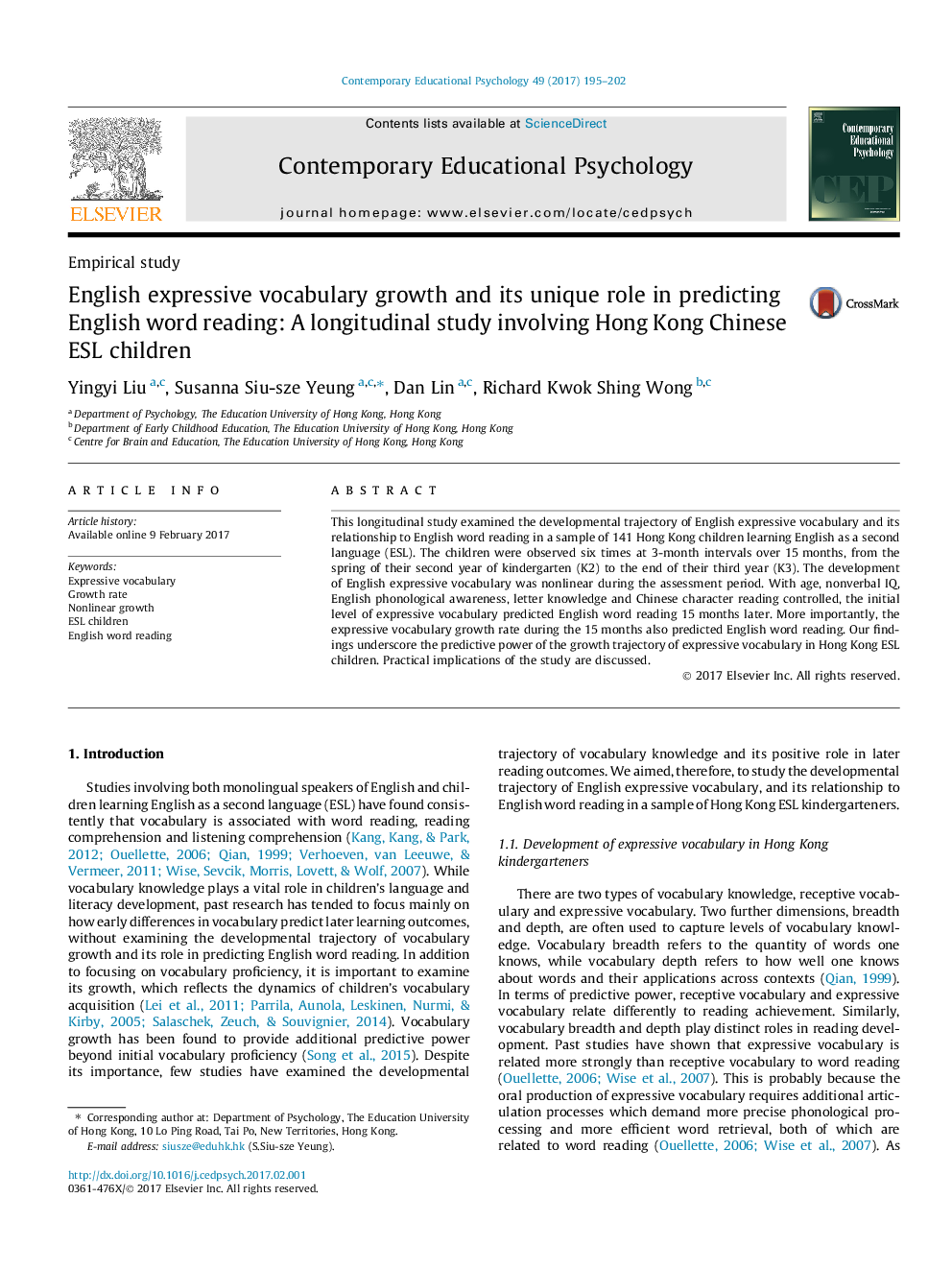| Article ID | Journal | Published Year | Pages | File Type |
|---|---|---|---|---|
| 4937902 | Contemporary Educational Psychology | 2017 | 8 Pages |
Abstract
This longitudinal study examined the developmental trajectory of English expressive vocabulary and its relationship to English word reading in a sample of 141 Hong Kong children learning English as a second language (ESL). The children were observed six times at 3-month intervals over 15Â months, from the spring of their second year of kindergarten (K2) to the end of their third year (K3). The development of English expressive vocabulary was nonlinear during the assessment period. With age, nonverbal IQ, English phonological awareness, letter knowledge and Chinese character reading controlled, the initial level of expressive vocabulary predicted English word reading 15Â months later. More importantly, the expressive vocabulary growth rate during the 15Â months also predicted English word reading. Our findings underscore the predictive power of the growth trajectory of expressive vocabulary in Hong Kong ESL children. Practical implications of the study are discussed.
Related Topics
Social Sciences and Humanities
Psychology
Applied Psychology
Authors
Yingyi Liu, Susanna Siu-sze Yeung, Dan Lin, Richard Kwok Shing Wong,
